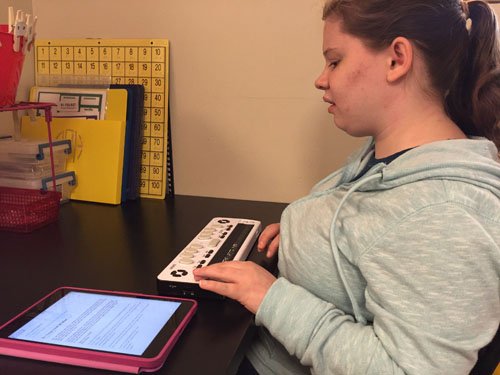
Definitely worth taking the time to watch the recently posted video of one of our monthly NH Parent Connect zoom meetings entitled “Accessing Genetic Resources for Children with Special Needs”. The first speaker Ed Kloza has extensive experience with genetic counseling for families and gave a great 101 on Genetics which was very helpful because there’s been a lot of discoveries made over the years and new information known about human genetics and hereditary conditions. Ed also gave an overview of how genetics relate to hereditary eye diseases. According to the Genetic and Rare Diseases Information Center (GARD) there are approximately 350 hereditary eye disorders of which 60% of blindness among infants is caused by inherited eye disorders. The topic of “Can we fix Genetic Changes?” was addressed. For years research has been accomplished by CRISPR – Gene Editing Technologies, which as recently as May this year reported on the Morning Edition of NPR “Blind Patients Hope Landmark Gene Editing Experiment Will Restore Their Vision”; A story about research being done on the congenital eye condition Leber’s Amaurosis, one of the rare causes of childhood blindness.
Co-presenter Karen Volle, Project Manager of New England Regional Genetics Network (NERGN) shared about their organization’s great resources for families at www.negenetics and introduced the new launch of the website Genetics Education Materials for School Success at www.gemssforschools.org.
Blindness and visual impairments is rare in children, even more the variety of causes are rare and many are genetic conditions. Parents feel a great sense of emotional pain of shock, grief and sometimes guilt that for some reason they are responsible for the cause of their child’s diagnosis. I know firsthand as my son at 10 months old was diagnosed with an extremely rare form of infant malignant eye cancer called retinoblastoma. Within days of his diagnosis he had immediate surgery to remove his right eye and treatment on his left eye. We were told that my son would need to undergo medical treatment for the next five years to save his remaining vision and his life. We were devastated and felt isolated and alone in our experience. As parents we can find comfort by connecting with other families who have had similar experiences. I learned how important it is to reach out and learn from other experienced parents and experts in the medical and educational fields. We encourage you to stay in touch with NH Parent Connect to continue to learn from others and to contribute your support and knowledge with other families!

